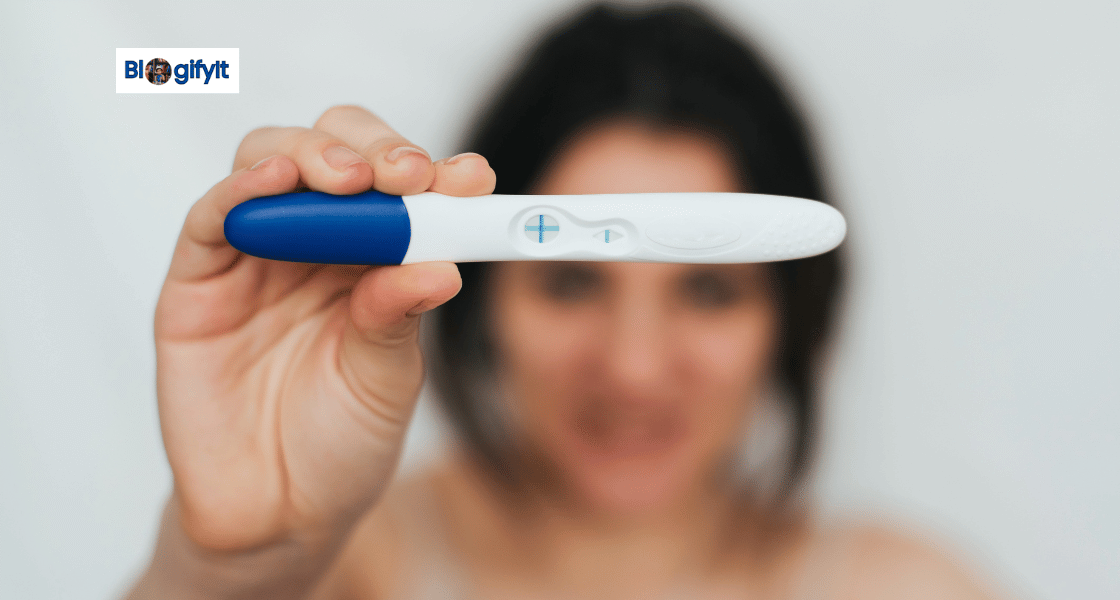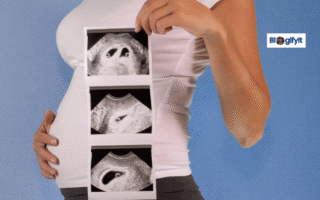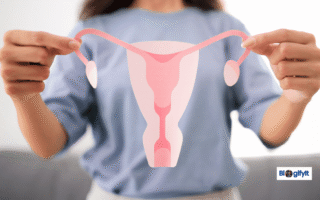How to know if I am pregnant without a test, if you are also thinking the same, you’re not alone—and the answer lies in tuning in to your body’s earliest signs and signals.
Let’s be honest—waiting to take a pregnancy test can feel like the longest wait ever. Whether you’re hoping for a positive result or not, the uncertainty can be overwhelming. But here’s some good news: your body often starts giving you subtle clues very early on, even before a missed period or without using a test kit.
So, if you’re wondering how to know you are pregnant without a test at home, this guide will walk you through real signs and symptoms that could indicate pregnancy in its earliest days.
How to Know If You Are Pregnant Without a Test
You don’t always need a test to get a hint that something’s changed in your body. Here’s how to know if you are pregnant without a test:
1. Very Early Signs of Pregnancy in 1 Week
Yes, it’s possible to feel different just one week after conception. These are some very early signs of pregnancy (1 week) that you might notice:
- Fatigue – You feel unusually tired without much physical effort.
- Tender breasts – They might feel swollen, sore, or sensitive to touch.
- Mild cramping or spotting – Known as implantation cramps or bleeding.
- Mood swings – You might feel emotional or irritable for no clear reason.
- Bloating – Similar to PMS but can start early in pregnancy.
- Increased urination – You feel the urge to pee more often.
2. First 72 Hours of Pregnancy Symptoms
Within the first 72 hours of pregnancy, most people won’t notice dramatic changes—but some sensitive women say they experience:
- A subtle fluttering or heaviness in the lower belly
- A sudden sense of warmth or dizziness
- An unexplained metallic taste in the mouth
- Changes in cervical mucus – thicker, creamy discharge
3. 3 Days Pregnant Symptoms
At 3 days pregnant, symptoms are usually internal and hormonal, but you might feel:
- Cramping or pinching sensation near the uterus
- An emotional shift or unexplained calmness
- Slight nausea or food aversion
While these aren’t definitive signs, paying close attention to your body can give you helpful clues.
Hidden Pregnancy Signs (Often Missed)
Some pregnancy signs are subtle and easy to miss—these are what we call hidden pregnancy signs:
- Nosebleeds or increased mucus production
- Headaches or lightheadedness from hormonal changes
- Heightened sense of smell – You suddenly can’t tolerate strong odors
- Constipation due to hormone shifts slowing digestion
- Skin changes – Darker nipples, mild acne, or pregnancy “glow”
These signs often go unnoticed, especially if you’re not actively trying to conceive.
How to Know You Are Pregnant Without a Test Before Missed Period
This is one of the most common pregnancy related doubts: How do you know you are pregnant without a test before a missed period? While a missed period is usually the first big giveaway, your body might drop hints earlier through:
- Implantation bleeding (light pink or brown spotting, not red like a period)
- Temperature changes – Basal body temperature stays elevated post-ovulation
- Changes in appetite – Sudden cravings or disinterest in your favorite foods
- Sore gums or a metallic taste
- Lower backaches
These symptoms can begin 7–10 days after ovulation, often before your period is due.
How to Know You Are Pregnant Without a Test at Home
So you’re sitting at home and wondering: How can I know I am pregnant without a test? or how to know if you are pregnant without a test kit? Here’s what you can do right where you are:
1. Track Your Cervical Mucus
What to Look For:
After ovulation, your cervical mucus usually becomes dry or scanty if you’re not pregnant. But if you are pregnant, your body continues to produce thick, white, or creamy cervical mucus due to rising progesterone levels.
Why it matters:
- This is an early sign that your body is maintaining the uterine lining for pregnancy.
- The mucus acts as a protective barrier, supporting embryo implantation and preventing bacteria from entering the uterus.
What you can do:
- Use clean fingers or toilet paper to observe the consistency after wiping.
- If your mucus remains milky, lotion-like, and persistent, it’s worth paying attention.
2. Check Your Basal Body Temperature (BBT)
What to Look For:
BBT is your lowest body temperature, usually measured first thing in the morning before any activity. After ovulation, your temperature naturally rises due to progesterone. If you’re not pregnant, it drops again before your period. But if you’re pregnant, it stays elevated for 18 days or more.
Why it matters:
- A consistently high BBT for over two weeks can be a strong early pregnancy sign.
- It reflects ongoing progesterone activity to support the uterine lining.
What you can do:
- Use a digital BBT thermometer daily and track your temperature on a chart or app.
- Look for a triphasic pattern (a third temperature shift) as an additional possible indicator of pregnancy.
3. Touch Your Lower Abdomen Gently
What to Look For:
Some women report a feeling of tightness, heaviness, or mild bloating in the abdomen around the time implantation occurs.
Why it matters:
- While it’s not a medically reliable indicator, some women feel early changes due to increased blood flow and uterine activity.
- However, this could also be related to digestion, PMS, or ovulation symptoms.
What you can do:
- Gently press a few inches below your belly button to observe if anything feels unusual.
- Don’t expect to feel a “baby bump” at this stage—you cannot physically feel the embryo at 1–3 weeks pregnant.
Important Note:
There is no scientifically validated “touch point” that confirms pregnancy on your own. Use this only as a supporting observation, not a confirmation.
How Long Does It Take to Know If You Are Pregnant Without a Pregnancy Test?
Typically, you can start noticing early pregnancy signs as soon as 5–7 days after conception, but for most people:
- Symptoms show up clearly around 10–14 days after ovulation.
- That’s about the time your period would be due or slightly before.
How to Confirm Pregnancy Without Doing a Test?
Wondering how to confirm pregnancy without doing a test? While a test is the most accurate method, here are some natural cues to rely on:
- Symptom stacking – Experiencing multiple early pregnancy symptoms together (nausea + fatigue + sore breasts)
- Missed period – Especially if your cycles are regular
- Consistent elevated BBT – Reliable if you’ve been tracking temperature
- Natural intuition – Believe it or not, many women “just know” due to a sudden emotional or physical shift
Still, a home test or doctor visit is the only way to confirm it 100%.
Where Do You Touch to Feel If You Are Pregnant?
This is a common myth. There is no specific place to touch to confirm pregnancy early on. While some women feel fullness or bloating just above the pubic bone, it’s not a sure indicator.
If you’re further along (after 12 weeks), a trained midwife or doctor may be able to feel the uterus above the pelvic bone—but you won’t be able to detect this yourself in early pregnancy.
How Can I Confirm My Pregnancy By Myself?
You can:
- Track early symptoms like those listed above.
- Monitor cervical mucus or basal body temperature.
- Wait for a missed period and note if your symptoms intensify.
However, if you’re serious about confirming, eventually a home pregnancy test or blood test will give you a definitive answer.
Final Thoughts
It’s completely normal to wonder how to know you’re pregnant without a test, especially in the early stages when you’re eagerly (or anxiously) waiting. Your body speaks—but you have to listen closely.
Every woman is different, and while you might not experience all symptoms, a combination of physical signs and intuition can give you a pretty good idea. But remember: if you’re unsure or experiencing unusual symptoms, don’t hesitate to consult your doctor. Trust your body, but also seek clarity when needed.




